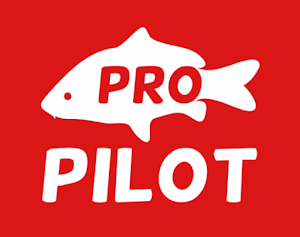Carp fishing is a blend of art and science, and one of the most critical aspects is baiting. Boilies are a go-to bait for many carp anglers due to their effectiveness and versatility. However, making your boilies go further, especially during a 24-hour session, can be challenging. Here are some strategies to maximize your boilies' impact and increase your chances of a successful session.
1. Pre-Session Preparation
1.1 Pre-Baiting
Pre-baiting is a proven tactic to condition the carp to your boilies before your main session. If possible, pre-bait your chosen fishing spot with a moderate amount of boilies a few days before your session. This helps in:
- Attracting carp to the area.
- Getting the fish accustomed to your bait.
1.2 Soaking and Glugging
Enhance your boilies by soaking or glugging them in attractants. This not only makes them more appealing but also helps them release scent and flavor over a longer period. Popular glugs include:
- Fish oils
- Sweet syrups
- Amino acid-based liquids
2. Session Strategy
2.1 Strategic Baiting
During your 24-hour session, baiting smartly is crucial. Here’s how to do it:
- Initial Baiting: Start with a small amount of boilies. Scatter around 10-20 boilies per rod. This attracts carp without overfeeding them.
- Regular Top-Ups: Instead of a large amount at once, top up your baiting every few hours with 5-10 boilies. This keeps the carp interested without overwhelming them.
2.2 Using PVA Bags and Sticks
PVA (polyvinyl alcohol) bags and sticks dissolve in water and can be filled with a mixture of boilies and other attractants. This method targets a specific area around your hook bait, ensuring concentrated attraction.
- PVA Bags: Fill with crushed boilies, pellets, and a liquid attractant. Attach to your rig for a potent baiting method.
- PVA Sticks: Use a mix of ground boilies and attractant, forming a stick that can be threaded onto your hook link.
3. Boilie Management
3.1 Size and Shape Variation
Use boilies of different sizes and shapes. Carp can be cautious of uniform bait. Mixing it up can trigger their curiosity and feeding response. For example:
- Mix 10mm and 15mm boilies: Different sizes can confuse carp, making them less wary.
- Crushed Boilies: Mix crushed boilies with whole ones to create a varied baiting scenario.
3.2 Homemade Boilies
Consider making your own boilies. This allows you to control the ingredients and tailor them to the specific preferences of the carp in your chosen location. Homemade boilies can also be more cost-effective, allowing you to use more bait without breaking the bank.
4. Environmental Considerations
4.1 Weather and Water Conditions
Adjust your baiting strategy based on the weather and water conditions:
- Warm Weather: Carp are more active and may require more bait.
- Cold Weather: Carp feed less, so reduce your baiting accordingly.
- Clear Water: Use more natural-looking and subtle boilies.
- Murky Water: Bright or high-contrast boilies can be more effective.
5. Observation and Adaptation
5.1 Watch the Water
Keep an eye on carp activity throughout your session. Look for signs like bubbling, jumping, or subtle water movements. Adjust your baiting based on their behavior:
- High Activity: Increase your baiting slightly.
- Low Activity: Reduce baiting to avoid overfeeding.
5.2 Adapting to Results
If a particular approach isn’t yielding results, don’t hesitate to change tactics. Try different boilie flavors, sizes, or baiting methods until you find what works best.
Conclusion
Making your boilies go further during a 24-hour carp fishing session involves a combination of preparation, strategic baiting, and adaptability. By pre-baiting, using attractants, managing your boilies smartly, and adjusting to environmental conditions, you can maximize your bait’s effectiveness and increase your chances of landing that prized carp. Happy fishing!






